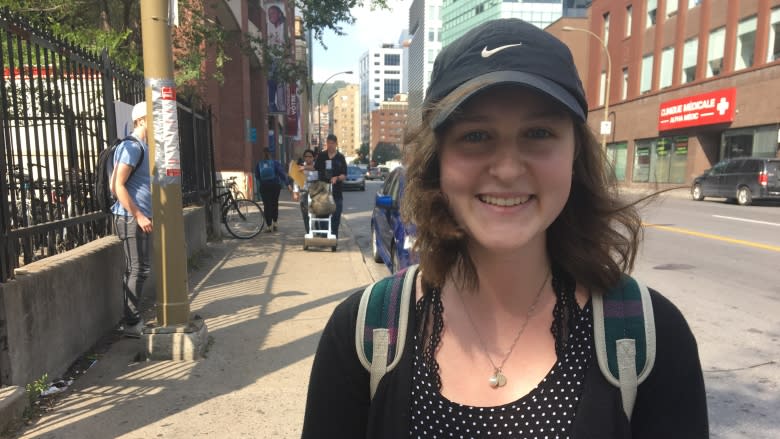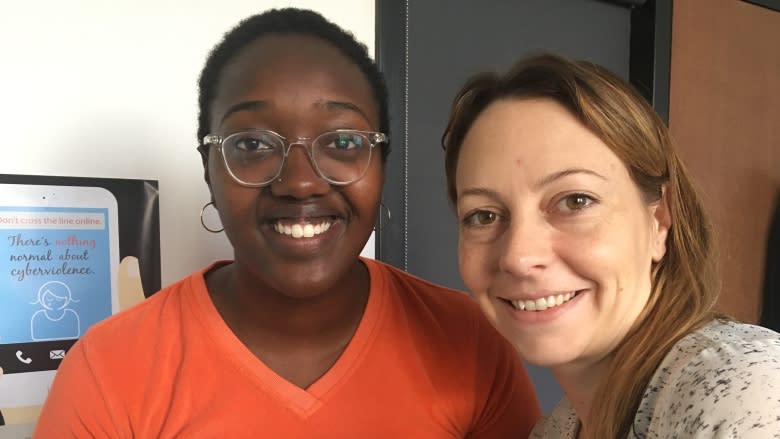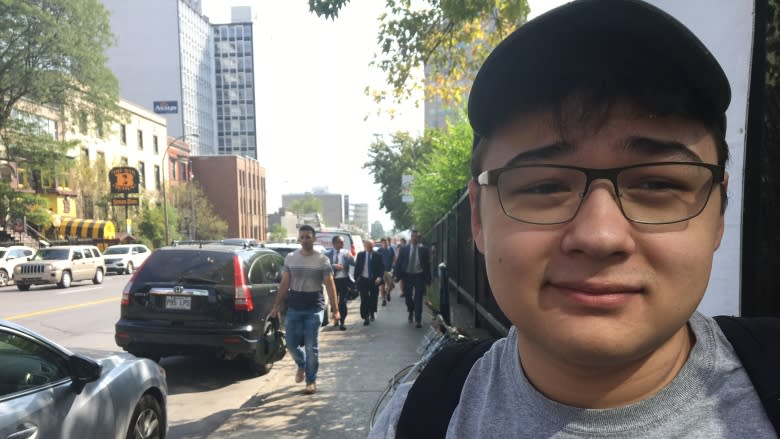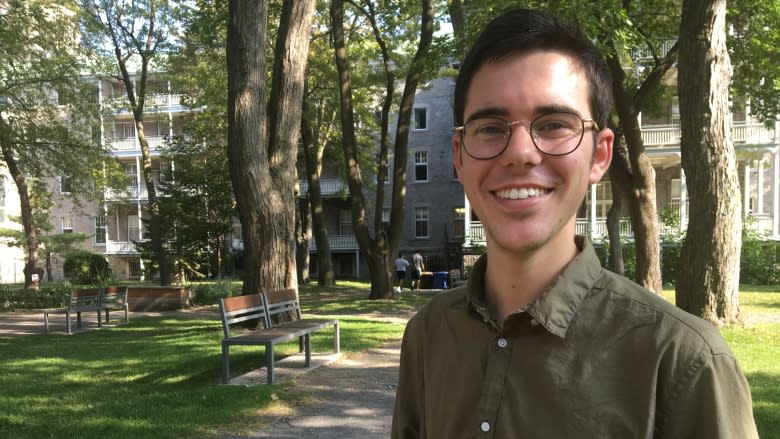Montreal university students say consent workshops are crucial
Thousands of Montreal university students have been learning about consent this month — how to give and how to obtain consent both before and during sexual activity.
Consent workshops were mandatory before many frosh events at both McGill and Concordia universities and now more extensive workshops are happening in student residences.
Concordia is rolling out consent workshops this weekend for all 900 students at its residences — it's a first for the university and the content was developed by Jennifer Drummond, coordinator of the university's Sexual Assault Resource Centre.
At McGill consent workshops are mandatory for all 3,500 first-year students in residence and they take place throughout the month of September. The workshops have been held for more than 10 years.
CBC Daybreak's Shari Okeke met up with first year students from both universities who shared some of their experiences and their opinions about the workshops.
'They're going to touch you'
Sophie Burt, a first-year Concordia student in anthropology and who is originally from Pennsylvania, says consent workshops are important.
"When we go out to the clubs, guys are going to come up and they're going to touch you and you've got to know where your limits are," Burt said.
Burt and her friends look out for each other and signal a thumbs up or down to indicate whether or not they need help out of a situation.
"I think it's worse here just because back home the drinking age is 21 so you don't have the experiences of going out to clubs or bars," she said. "There are parties but it's just a different culture back there than it is here."
'Catcalled on the daily'
Jillian Giberson, from New Jersey, and Zoe Bernard, from Toronto, are both first-year McGill students in residence who say they're shocked by how some men have treated them in Montreal.
"Being catcalled on the daily is really de-humanizing and demoralizing and it makes you feel like you are an object," Giberson said.
After the workshop, however, Giberson was encouraged by comments made by other students — including men — who took part.
The men were astonished to hear how often women deal with catcalling, saying they want to do more to prevent that and stop it when they witness it, she said.
While the workshop is a great starting point, Giberson said she would also would to see followup training and opportunities for deeper discussions about consent and the impact of sexual assault.
Clear enthusiastic 'yes'
As part of the consent campaign at Concordia, Drummond developed the content for the consent workshops, which she says focus on sexual communication and respect in relationships.
"Making sure the person is giving a clear enthusiastic 'yes,' the importance of checking in, some people will make jokes about 'Do I have to get someone to sign a form saying they're consenting to this activity?' No you don't need someone to sign a form," Drummond said.
"We talk about that, say it can be a natural, even sexy part of your sex life with someone...it's an ongoing conversation making sure people are interested, having fun and okay with what's happening."
Masayoshi Suzuki, a fine arts student at Concordia University, is living in residence and said it's valuable to have access to the workshops.
He said in the past consent was implied but that can no longer be the case.
"Now there's a formality to it. Now you need to make sure you get it and it's very important you get it," Suzuki said.
"It's kind of stressful but I think it's for the greater good. I'm fine partaking in whatever I have to do to make sure everyone's safe."
Learning to intervene
The consent workshops also include information about how and when to intervene if a student notices someone might be in need of help.
Robert Gusdal, a resident assistant in his third year at Concordia University, has had extensive consent training as well as personal experience intervening in order to help a friend.
Gusdal said sometimes friends discuss their intentions before a night out. One night a friend had told him she had no intention of leaving with anyone that night, but after several drinks Gusdal noticed she was about to exit the bar with someone so he intervened.
He reminded her of their discussion earlier and eventually convinced her she was too drunk to give her consent.
"It can be daunting and it can be kind of scary to make those decisions for someone else but the next day she sent me a message and was so so thankful that I stepped in when I did."
After attending the consent workshop at McGill University, Giberson now feels more confident that she could overcome social anxiety and intervene in the future, if necessary.
"Now if I were ever to see someone I know is in that situaiton, I don't think there's a doubt in my mind that I would do something about it — solely based on the worskshop we had and what's happened to my friends."






